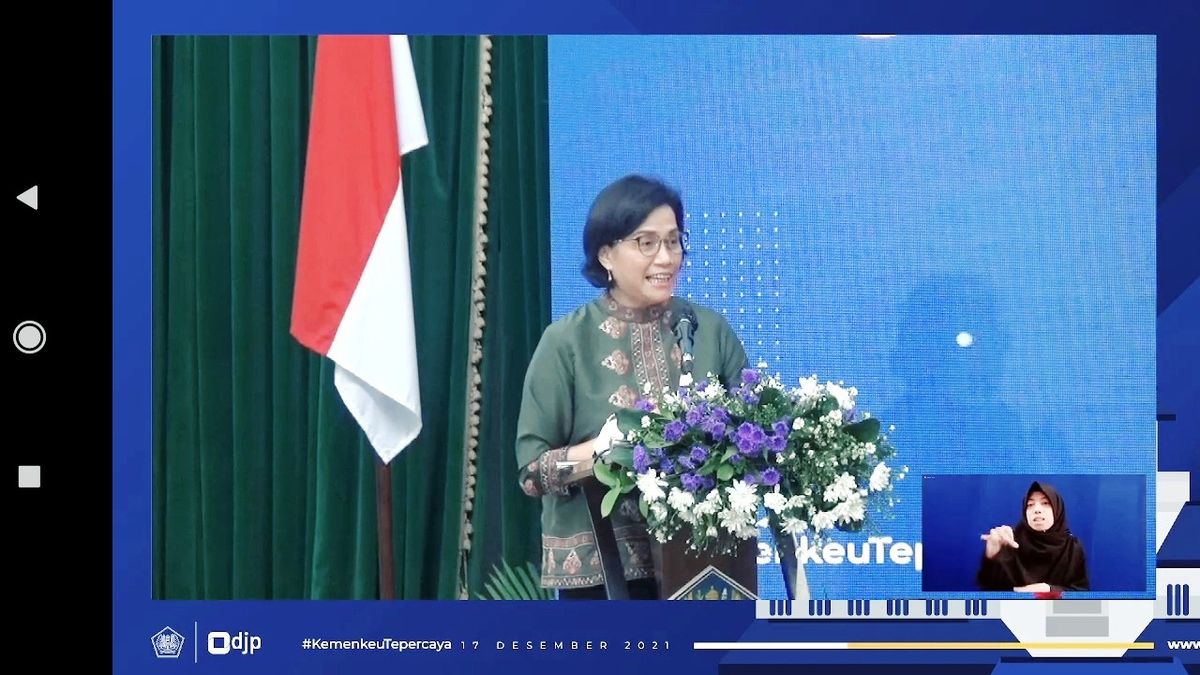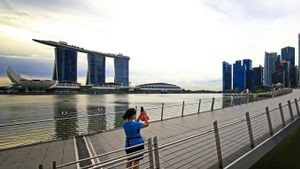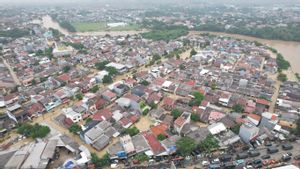JAKARTA - Minister of Finance (Menkeu) Sri Mulyani revealed that the stipulation of the Harmonization of Tax Regulations (HPP) was a strategic step for the government to restore the State Revenue and Expenditure Budget (APBN).
"We don't want after the COVID-19 pandemic to leave problems in the APBN," he said when he was a speaker at the Socialization of the HPP Law at Gedung Sate, Bandung which was broadcast virtually, Friday, December 17.
According to the Minister of Finance, the restructuring of the state budget is carried out in a measurable and gradual manner. In his view, the most priority thing is to ensure that the community recovers first in terms of health, and then followed by the economic aspect.
“Then in the end, the state budget will be healthy again. For this reason, the government and the DPR are designing tax reforms contained in the HPP Law," he said.
The Minister of Finance dismissed the notion that every tax regulation is closely related to increasing the financial burden for the community.
"In fact, in this harmonization, there are many sides to the people, especially the poor and MSMEs. It is impossible for Commission XI of the DPR to allow the government to make policies that are burdensome,” he said.
For information, the HPP Law consists of nine chapters that have six regulatory scopes, namely General Provisions and Tax Procedures (KUP), Income Tax (PPh), Value Added Tax (PPN), Voluntary Disclosure Program (PPS), Carbon Tax, and Excise. Each scope has a different policy enforcement time.
According to VOI's records, the state's health condition continues to improve. In the Ministry of Finance's publication some time ago, it was stated that the budget deficit until the close of the third quarter of 2021 was IDR 452 trillion, equivalent to 2.74 percent of GDP.
This amount is still far from the target of IDR 1,006,4 trillion or 5.7 percent of GDP at the end of the year. In fact, the Minister of Finance is optimistic that the outlook for the APBN deficit will only touch the level of 5.1 percent to 5.4 percent of GDP on December 31.
Meanwhile, for the 2022 period, the deficit figure is pegged at the level of 4.8 percent of GDP or equivalent to IDR 868 trillion. This means that the health condition of the APBN is gradually recovering with a lower 'overdrawn' burden.
Just so you know, Law Number 2 of 2020 concerning State Financial Policy mandates that the APBN deficit must return to a normal level below 3 percent of GDP in 2023.
The English, Chinese, Japanese, Arabic, and French versions are automatically generated by the AI. So there may still be inaccuracies in translating, please always see Indonesian as our main language. (system supported by DigitalSiber.id)













